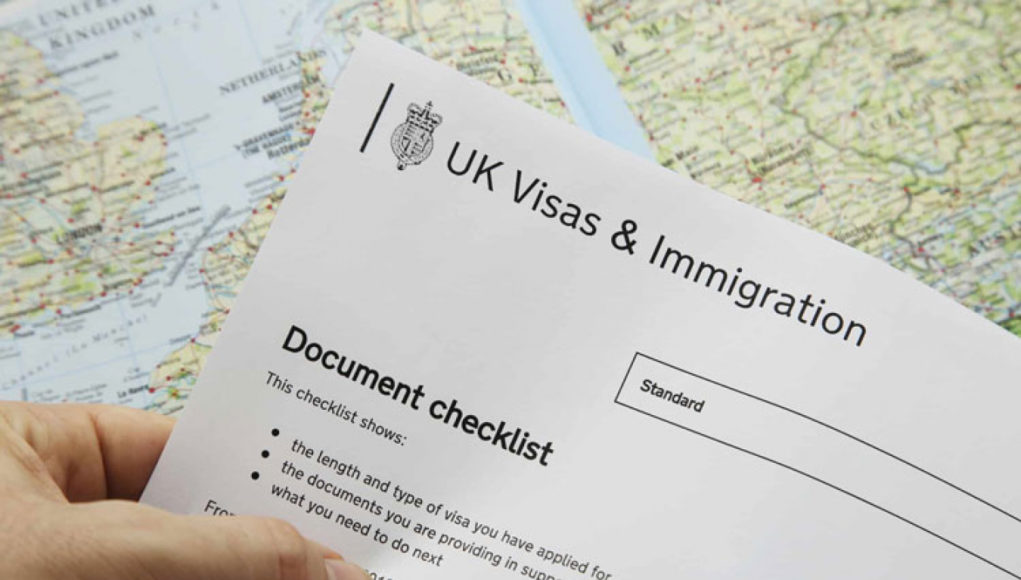The United Kingdom presents a lot of job opportunities, with London being one of the best cities in the world as far as job opportunities are concerned. Opportunities, where companies are providing sponsorship for work permits in the UK, have made it a popular destination for work, training, and study so you learn how to get a work permit for the UK without a job offer.
As a foreigner, you just can not wake up and go to the UK and then start working with just your passport and visa. Before your visit, inquiries about whether or not you need a work permit are important.
You certainly need a work permit to be able to live in the UK. However, you can visit for a stay of not more than 6 months without a work permit. During your stay, visiting family and friends, undertaking short-term study, and attending job interviews, events and conferences are permissible. Next, we will help you figure out how to get a work permit for the UK without a job offer.
How to get a work permit for the UK without a job offer.
For longer stays, you’ll need to apply through the UK immigration points-based system, via the gov.uk website. To score the necessary points, you’ll need to show that you meet the eligibility criteria associated with your chosen visa. This system aims to prioritize skills and talent over where someone comes from.
Irish citizens need not apply for a work permit to live and work in the UK, as free movement, rights, and privileges between these countries continue to be protected by the Common Travel Area arrangements
Most countries’ immigration and long-term stay rules are complex and subject to change. This is now the case for the United Kingdom since the country left the EU on how to get a work permit for the UK without a job offer.
Therefore, it is important to know as much as possible about the UK work permits and visa types available.
The question that usually goes unanswered is whether or not one can get a UK work permit without a job offer. Normally, you will need a confirmed job to come and work in the UK. Or you need to be in an existing position and move to your company’s UK office.
There are a few exceptions as in the case of a graduate visa that gives you- if taking certain courses in the UK- the liberty to stay for a given period of time and look for a job. Once you have acquired placement with a company in the UK, the next move is to look for an organized way that does not strain your pocket to pay for your permit. If there is a need to move your earnings overseas you can also work on that.
Now that we have established, there are only a few exceptions where you can be eligible for a work permit without a job offer, it is also important to acquaint yourself with the types of work visas there are in the UK. A myriad of them exists for either short or long stays.
The one you will need is determined by; your areas of expertise and qualifications, whether or not you have a job offer or sponsorship and the kind of job you will be doing. Another important factor is, whether you want to bring your family along.
Here are some of the main long-term work visas:
SkilledWorker- allows holders of this visa to reside or reside in the UK and work in qualified roles with an authorized employer. Visas are valid for up to 5 years before the extension is required. A confirmed job is required to obtain this visa. The position must also be for a qualified professional and you must be paid the minimum wage specific to the type of work you do.
Intra-company – Transfer or Graduate
Trainee- these are visas if you have been posted while living or staying in the UK and are authorized to work in your employer’s UK office. There are also in-house visas designed specifically for graduate students who are transferred as part of a managerial or professional role program. As with skilled worker visas, you are working in a qualified role and must be paid a minimum of £41,500 for an in-house transfer visa and a minimum of £23,000 for an in-house graduate trainee visa. The length of time you can stay depends on the amount you pay and whether you are a trainee or a transferee.
Health and Care Worker – this long-term visa is tailor-made for medical professionals coming to the UK to do an eligible job with the NHS, an NHS supplier, or in adult social care.” You, however, need a confirmed job offer and a minimum you will be paid depending on the type of job you will be doing. The visa allows you a five-year stay before renewal. These visas allow you to bring along family, only in the form of your spouse and children.
There are quite a few temporary work visas as well. These include;
Seasonal Worker – this is a short-term visa for people (18 years and above) coming to the UK for farm work for up to 6 months. A ‘Certificate of Sponsorship’ from a UK sponsor is required for this visa.
Graduate – After completing studies in the UK you may get this visa which allows you to stay in the UK for a maximum of two years. Ph.D. or other doctoral qualification gives you an extra year.
The course must have been a bachelor’s degree, postgraduate degree, or another eligible course. And, you must apply before your student visa expires.
Creative and Sporting – this visa serves the creative industry professionals from actors and dancers to musicians among others. Elite sportspeople with offers for work in the UL on a temporary basis can also apply. The period is 1 year. The visa is renewable if you have a Certificate of Sponsorship from a licensed sponsor.
SIMILAR CONTENT
- Documents You Need For A Child Passport Uk
- First Time British Passport Fees
- Is it easy to start a business in UK?
- Cost Of Studying Computer Science in UK
- 10 Most Affordable Cities in UK For students









